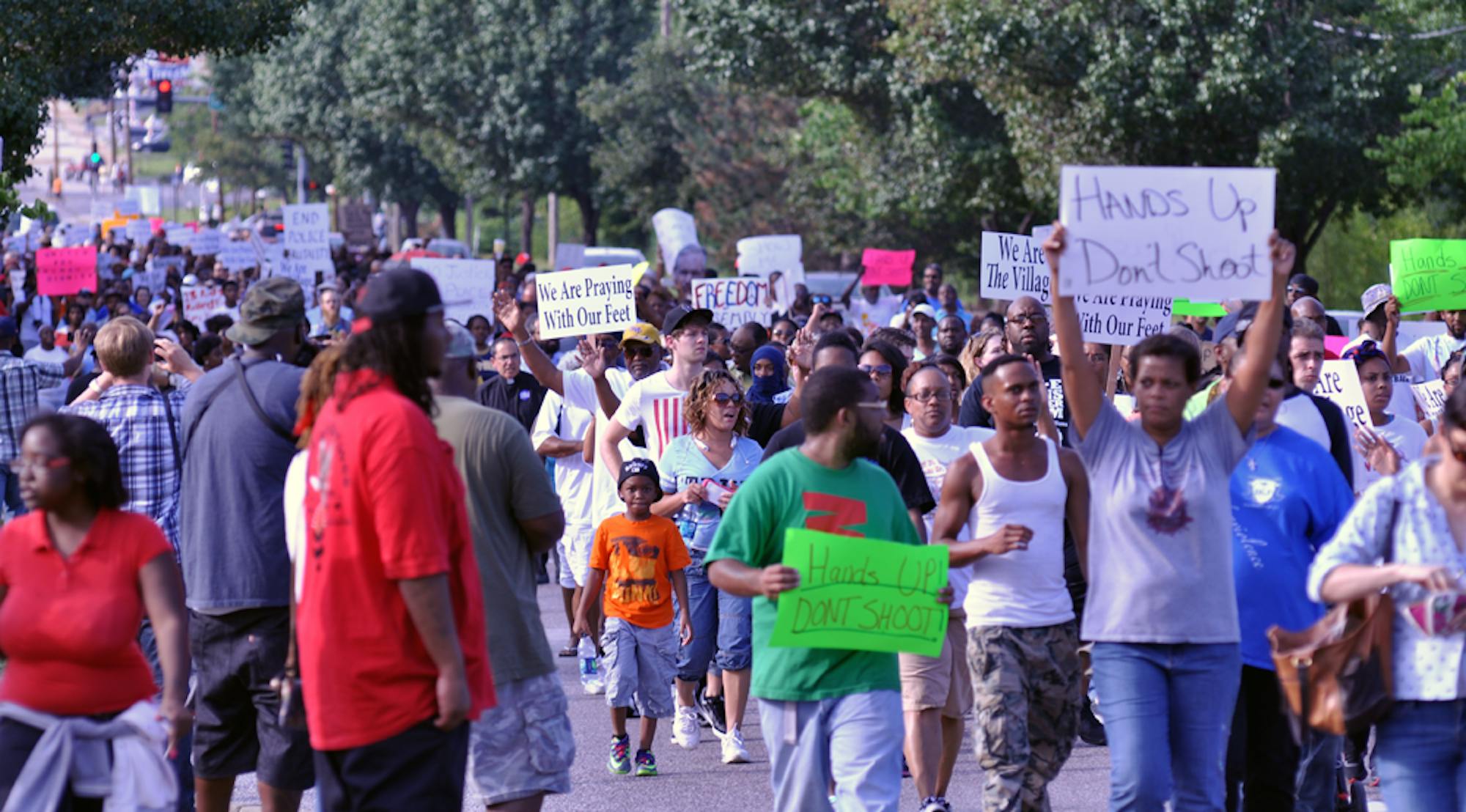
“Every other day in America is Good Friday,” the St. Louis-native with a black suit jacket, clear-framed glasses and dreads said, clamping his hands on the edge of his podium at the Candler School of Theology. “Death at the hands of the state. It happens so often that news of such a tragedy elicits a rather ordinary response. They killed another one … Ferguson: America’s Nazareth.”
With moments of intense engagement colliding against moments of erupting laughter, Reverend Osagyefo Sekou captured the roughly 50-person audience in an honest, two-hour dialogue about the intersection of the Ferguson movement and theology at a Dean’s Lecture on Wednesday afternoon.
Sekou, who was arrested twice while participating in the August protests in Ferguson for praying in front of riot police and co-leading a group of religious leaders, provided his vision for the role of the church in such movements. The ordained elder in the Church of God in Christ (Pentecostal) and professor of preaching at the Seminary Consortium of Urban Pastoral Education in the Graduate Theological Urban Studies Program in Chicago has published his theories in two essay collections, Al Jazeera America and more.
“If you tell me what you believe about Jesus, I can tell you what you believe about Ferguson,” he said. “Christianity is at yet another crossroads."
Sekou said the church — representing overly conservative notions without enough “radical edge” — does not know how to confront the new forms of leadership and language emerging in a new generation. Although inserting subtle critiques of certain aspects of the new generation’s movements, Sekou focused on how the church community needs to overturn the meaning of church and enter the streets where these new movements are forming — not as leaders but as followers.
[quote_regular name="" icon_quote="no"]“I was born again on the streets of Ferguson,” he said, his voice ringing throughout the room. “I have seen the face of God, and God has got tattoos on God’s face, and God sags God’s pants, and God is angry and God is queer.”[/quote_regular]
While in Ferguson, he found that the holiest place in the community on the ground was “a coffee shop run by white lesbians,” not a church.
“For the most part, the church has been a no show in Ferguson, and when they show up, they are just in the way,” he said, before providing a guide to change. “The church is like hip-hop. If the people are on the move, the church is on the move.”
While Sekou resigned from the pulpit to focus on nonviolent civil disobedience, he continuously urged the young prospective clergy members in the room to be the ones to question the church’s existing model and join the street movements.
“Ferguson is one of the new moments in which black leadership is defined by your proximity to the front lines,” he said. “The vast majority of black leadership [in the past] has been punditry.”
For Estee Nena Dillard, a third-year graduate student at the Candler School of Theology, Sekou’s words gave her practical tools that academic settings often lack.
“It really embodies: what does it look like for generations to transition?” she said. “What does it look like for clergy persons from one era to move into the next era and for us to do work on the ground that is the work of the academy, that is the work of the church.”
Along with that work, Dillard said, Sekou emphasized the marginalized voices that Emory “needs to pay attention to.”
“He spoke to those people,” she said. “He spoke from the hearts of those people.”
Quest Hunter, a second-year graduate student in the Candler School of Theology, also felt that Sekou was “handing over the baton” in what she found was “one of the best lectures” on campus, partly because of Sekou's "real" language.
“I think Emory is very much in its conservative realm,” she said. “It shows that it’s not just in the confines of this academic setting that you can express your knowledge. And it also shows this translation of what it really means from the streets to the academic realm and vice versa.”
— By Karishma Mehrotra





